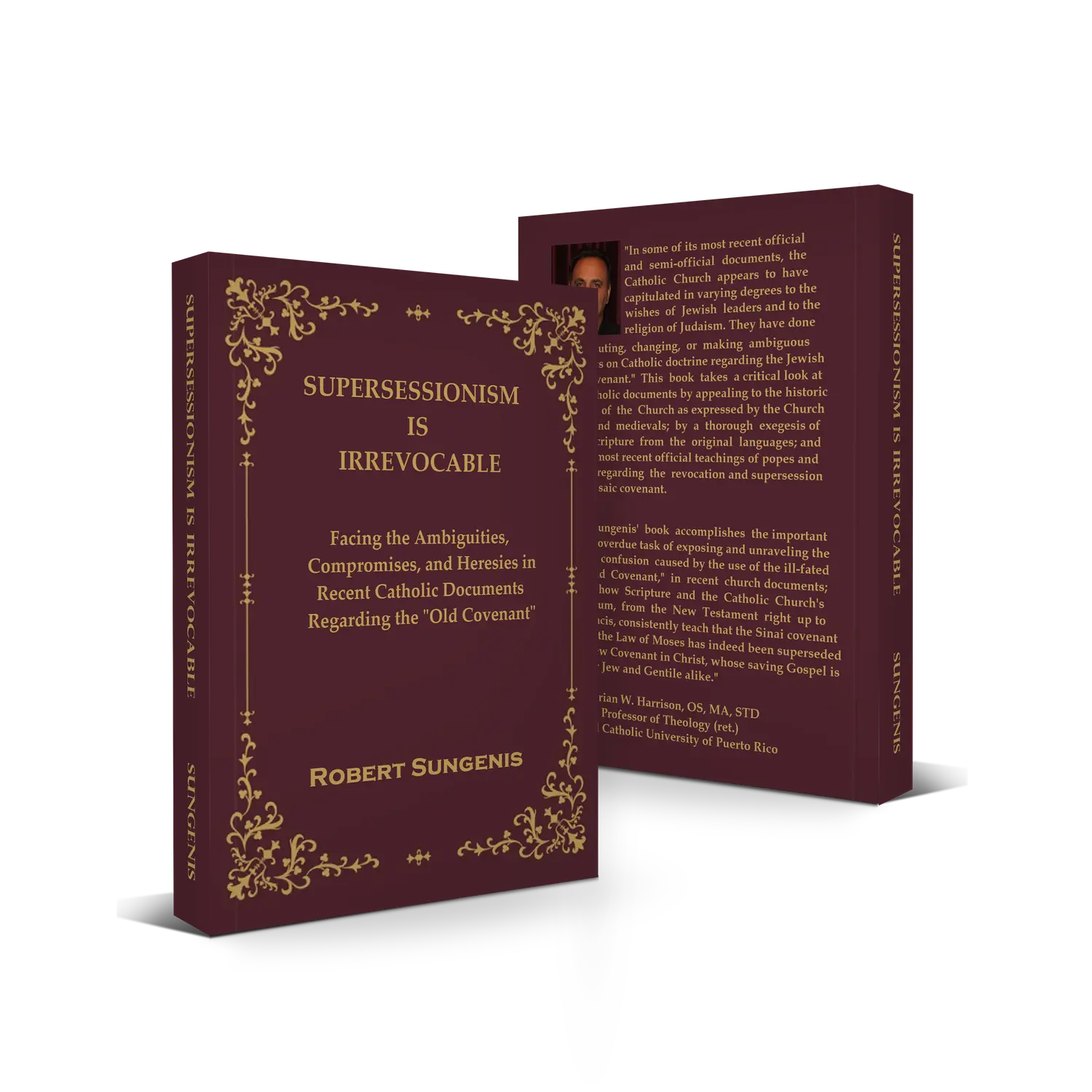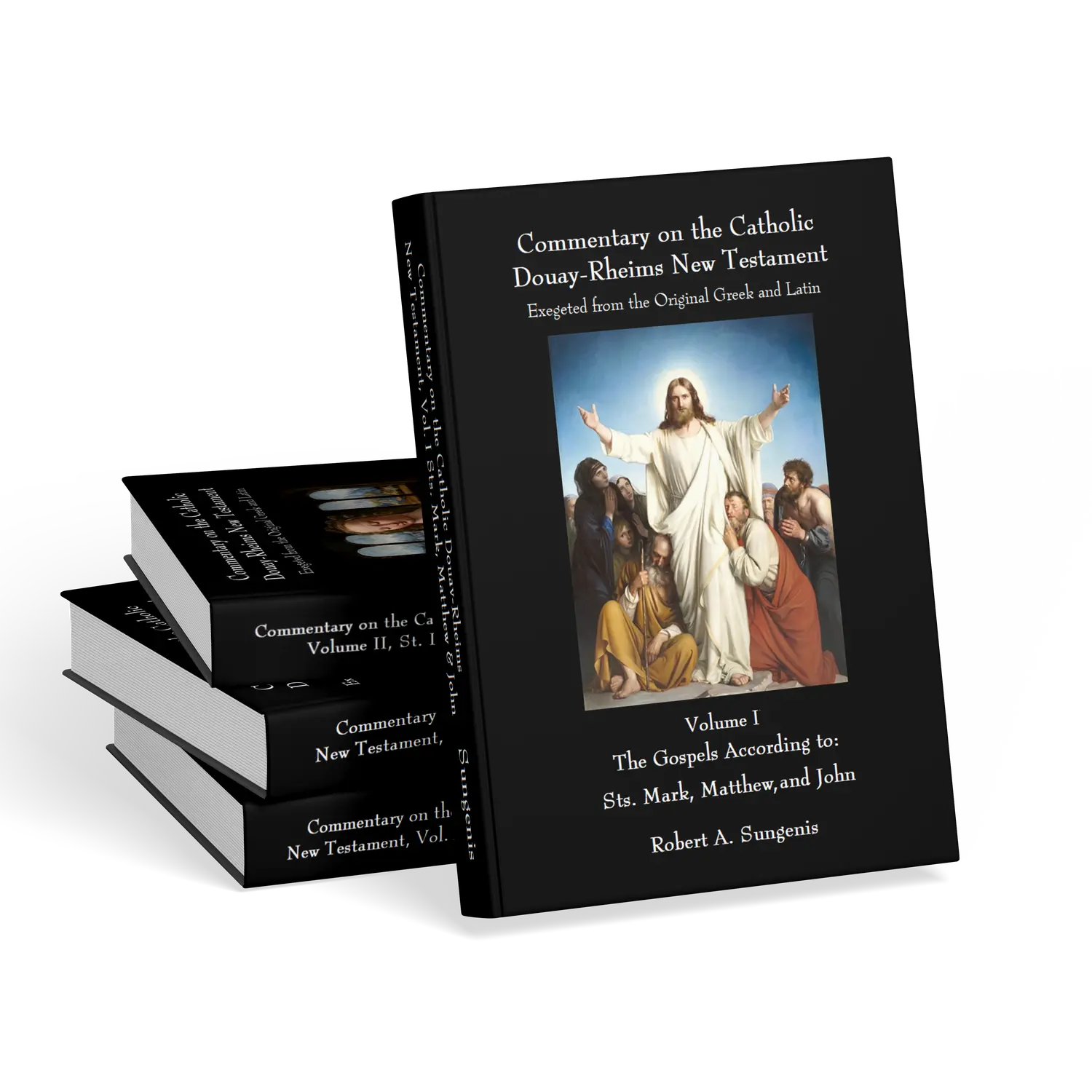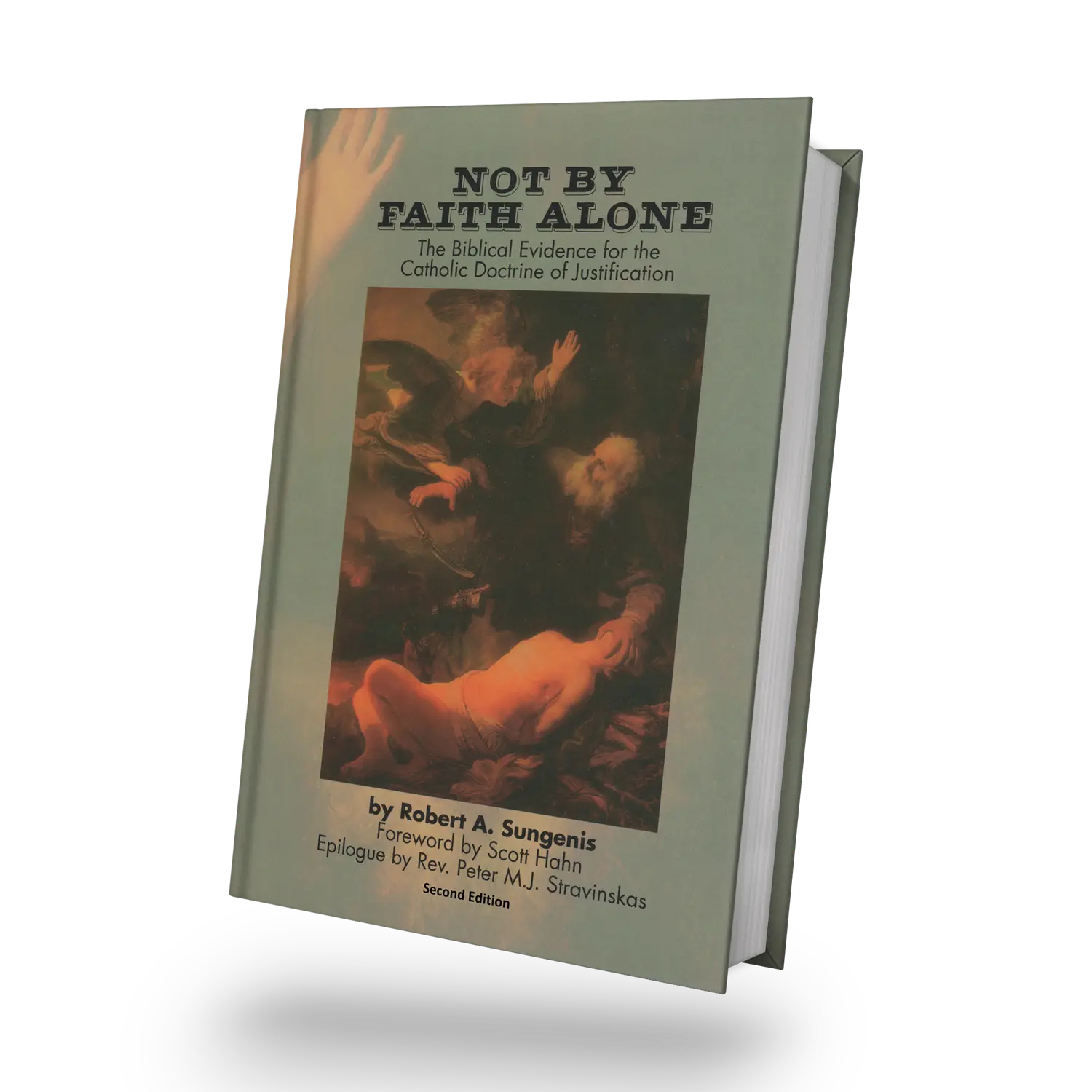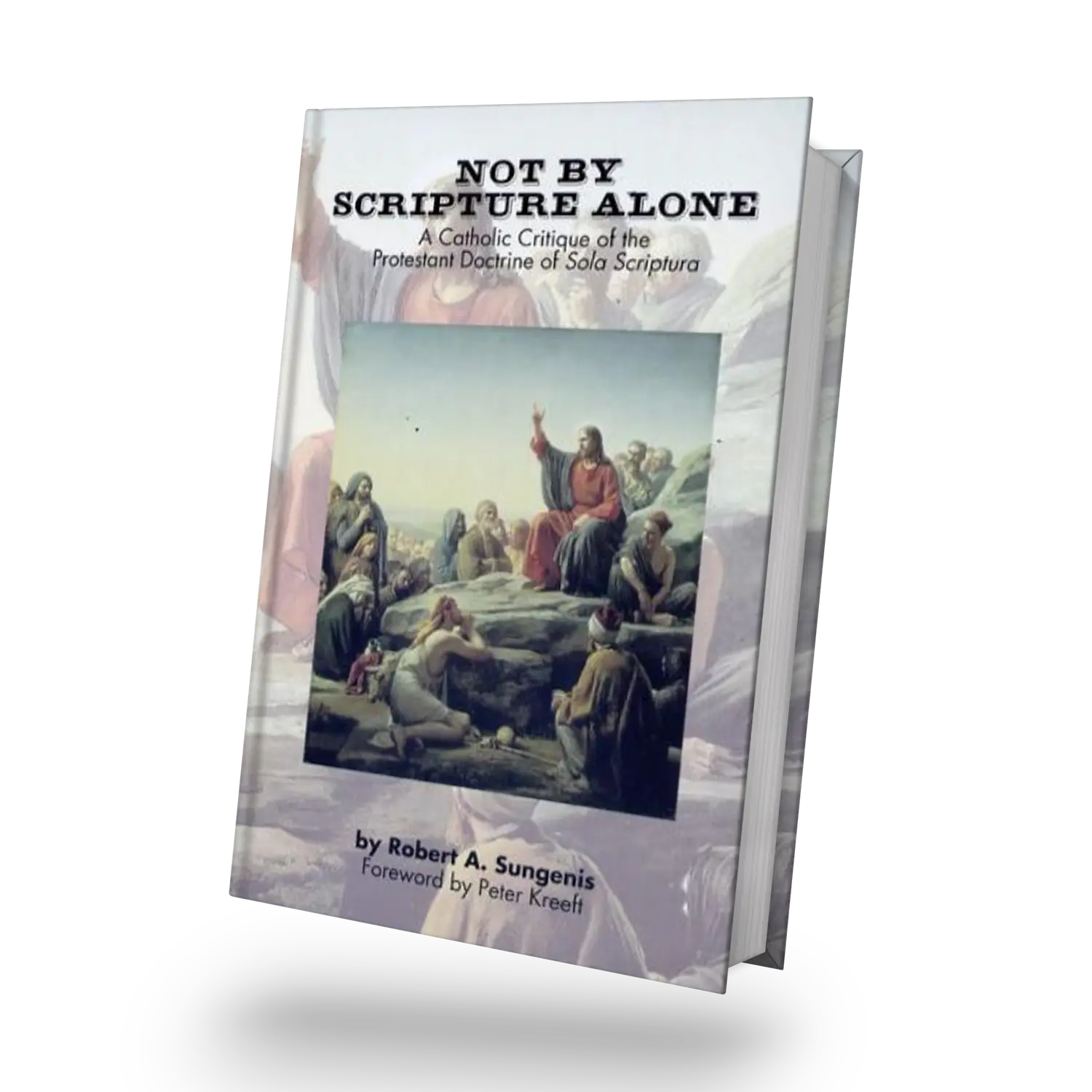Theological Works
Comprehensive scholarly examinations of Catholic doctrine, defending and explaining the faith through rigorous biblical exegesis, patristic evidence, and theological analysis.

Supersessionism Is Irrevocable
The Catholic Church's Historic Teaching on the Fulfillment of the Old Covenant
Robert A. Sungenis's Supersessionism Is Irrevocable examines how recent Catholic theological statements have diverged from the Church's traditional teaching that the Mosaic covenant was fulfilled and replaced by the New Covenant in Christ. The work provides a systematic theological and historical response to the claim, now found in certain post–Vatican II writings, that the "Old Covenant has never been revoked."
The study begins with a precise definition of supersessionism, explaining it as the belief that Christ's sacrifice consummated the Old Covenant and inaugurated the New, universal covenant of grace. Sungenis demonstrates that this doctrine has been taught consistently by the Fathers, the Councils, and pre–20th century papal documents. He contrasts this with the emerging notion of "dual covenant theology," which suggests that the Jewish people remain in a valid salvific relationship with God apart from Christ.
The book traces how this new language entered Church discourse, particularly through Nostra Aetate (1965), the Catechism of the Catholic Church, and subsequent Vatican commissions on Catholic–Jewish relations. Sungenis identifies the phrase "the Old Covenant has never been revoked," first introduced by Pope John Paul II in 1980, as the source of ongoing theological confusion. He documents how later catechetical editions and documents, influenced by figures such as Cardinal Christoph Schönborn, repeated the phrase without qualification, giving rise to interpretations incompatible with Catholic dogma.
Through careful exegesis of biblical passages including Romans 9–11, Galatians 3–4, and Hebrews 8–10, Sungenis argues that the New Testament consistently teaches the obsolescence of the Mosaic law after the death and resurrection of Christ. He cites Mystici Corporis Christi (1943) and the Council of Florence as clear reaffirmations that the Old Law ceased to be salvific after the Crucifixion.
Sungenis concludes that maintaining doctrinal integrity requires the Church to reaffirm supersessionism as a permanent and irrevocable truth. While condemning anti-Semitism and affirming the dignity of the Jewish people, he insists that theological clarity demands recognition of one covenant of salvation, fulfilled and made eternal in Christ alone.
Supersessionism Is Irrevocable functions as both a theological corrective and a historical critique. Combining scriptural exegesis, magisterial documentation, and analytical rigor, it calls for a return to doctrinal precision on the relationship between Israel and the Church, the Old Law and the New, and the singular universality of redemption in Jesus Christ.
Key Features:

Commentary on the Catholic Douay-Rheims New Testament
Exegeted from the Original Greek and Latin - All 4 Volumes
Robert A. Sungenis's four-volume Commentary on the Catholic Douay-Rheims New Testament (CAI Publishing, 2022–2024) stands as a comprehensive modern exposition of Catholic Scripture grounded in the Church's interpretive tradition. Each volume offers detailed verse-by-verse commentary on the 1899 Douay-Rheims translation, carefully compared with the original Greek and Latin texts, and supported by historical, linguistic, and theological sources.
Volume I covers the Gospels of Matthew, Mark, and John. It emphasizes the unity of the Gospel witness and the divine authorship behind the evangelists' distinct perspectives. Sungenis highlights the precision of the Latin Vulgate and its doctrinal implications, particularly on Christology, ecclesial authority, and the harmony between faith and works. Parables and miracles are interpreted in continuity with the Fathers, using philological notes to clarify translation choices and theological meanings.
Volume II explores the Gospel of Luke and the Acts of the Apostles. Luke's attention to history, universality, and the marginalized is examined alongside the Acts narrative of the Church's early growth. The commentary underscores apostolic succession, the sacramental life, and the continuity of the Church from Jerusalem to Rome. Sungenis also evaluates textual variants in the Greek manuscripts, offering insight into how these affect theological interpretation.
Volume III addresses the Pauline Epistles from Romans through First Timothy. It provides an in-depth treatment of justification, predestination, and the nature of grace, carefully distinguishing Catholic teaching from Protestant misinterpretations. Greek terminology and syntax are analyzed to illuminate key doctrines, while patristic commentary from Augustine, Chrysostom, and others reinforces the Church's understanding of Paul's letters.
Volume IV concludes the series with the remaining Pauline epistles and the Book of Revelation. The Catholic Epistles are examined for their moral and pastoral teachings, while the commentary on Revelation unites literal, allegorical, and ecclesial readings. Sungenis interprets the Apocalypse within the Church's eschatological framework, showing its consistency with prophetic symbolism and sacramental theology.
Taken together, these four volumes combine critical scholarship, fidelity to Tradition, and linguistic accuracy. They serve both as a theological resource for clergy and laity and as a corrective to modernist and Protestant readings of Scripture. The Commentary on the Catholic Douay-Rheims New Testament stands as one of the most extensive contemporary efforts to restore Catholic exegesis to its original depth and precision.
Key Features:

Not By Faith Alone
The Biblical Evidence for the Catholic Doctrine of Justification
A comprehensive 740-page examination of the Catholic doctrine of justification, providing definitive answers to Protestant objections. This magisterial work offers an exhaustive analysis of Scripture, demonstrating that the Catholic understanding of justification through faith and works is firmly rooted in biblical teaching.
Through meticulous exegesis and careful engagement with Protestant arguments, Dr. Sungenis presents a compelling case for the Catholic position, drawing on both Sacred Scripture and the writings of the Church Fathers to illuminate this crucial doctrine. The work addresses every major Protestant objection with detailed biblical analysis and patristic testimony.
This definitive resource stands as the most thorough defense of Catholic soteriology available, combining rigorous scholarship with pastoral clarity to help readers understand why the Church has consistently taught that faith and works are both necessary for salvation, as Scripture itself declares.
Key Features:

Not By Scripture Alone
A Catholic Critique of the Protestant Doctrine of Sola Scriptura
A 750-page defense of Sacred Tradition and the Magisterium's role in interpreting Scripture, demonstrating the biblical basis for Church authority. This groundbreaking work challenges the Protestant principle of sola scriptura by showing that Scripture itself testifies to the necessity of Sacred Tradition and the teaching authority of the Church.
Through careful historical analysis and biblical scholarship, Dr. Sungenis reveals how the early Church understood the relationship between Scripture, Tradition, and the Magisterium, providing readers with a thorough understanding of the Catholic position on divine revelation and ecclesial authority.
The work demonstrates that the Protestant principle of Scripture alone is self-refuting, as the canon itself was determined by Tradition and Church authority. This essential resource equips Catholics with the biblical and historical evidence needed to defend the Church's divinely ordained teaching authority.
Key Features:
Explore More Resources
Discover additional articles, videos, and answers to frequently asked questions about Catholic theology and apologetics.